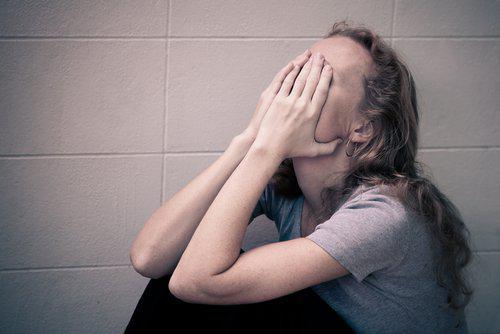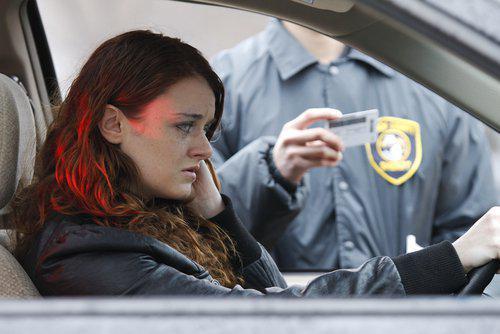Recent Blog Posts
Insanity Defense: Mental Health and the Legal System
 Modern media like movies and television often like to use the intersection of mental health and the law as a plot device, playing on legal theories like the insanity defense. However, this trend often leads to misconceptions about how mental health and the criminal justice system interact.
Modern media like movies and television often like to use the intersection of mental health and the law as a plot device, playing on legal theories like the insanity defense. However, this trend often leads to misconceptions about how mental health and the criminal justice system interact.
Fundamentally, a defendant's mental health can become important at two separate points during the case. First, it may affect whether the defendant can actually be tried, as in the recent case of the young girl accused of attempting to murder her friend in order to appease a fictional horror movie villain. Second, a defendant's mental health may be raised as a defense to a crime.
Fitness to Stand Trial
The preliminary point in the case where the defendant's mental health can be an issue is before the trial even starts. Chapter 971.13 of the Wisconsin Statutes requires that a defendant be mentally competent to stand trial. This means that the defendant must be able to understand the trial and what is happening to him or her, and he or she must be mentally capable of assisting his or her defense team in the way that a defendant normally would. So long as a defendant is unable to do those things he or she cannot be tried. However, the defendant is periodically reevaluated to determine his or her condition, and also receives treatment in order to try to make him or her mentally competent. Additionally, according to the statute, if a person is competent to stand trial only because they are being medicated, they still qualifies to be tried under the law.
Wisconsin Judges Showing OWI Leniency
 The Wisconsin state legislature has attempted to take a hard line when it comes to the crime of Operating While Intoxicated (OWI). One major part of this effort has been their institution of mandatory minimum sentences for repeat OWI offenders. However, the exact length of the mandatory minimum depends on the number of previous OWIs, how long ago they were, and a variety of other factors. The result is that the mandatory minimum sentence for the crime can range anywhere from just a few days to four years in prison.
The Wisconsin state legislature has attempted to take a hard line when it comes to the crime of Operating While Intoxicated (OWI). One major part of this effort has been their institution of mandatory minimum sentences for repeat OWI offenders. However, the exact length of the mandatory minimum depends on the number of previous OWIs, how long ago they were, and a variety of other factors. The result is that the mandatory minimum sentence for the crime can range anywhere from just a few days to four years in prison.
Now, a recent report by Gannett Wisconsin Media has revealed that some judges are not abiding by these mandatory minimums, and are issuing more lenient sentences. Although some are concerned about the fact that this report shows judges exceeding their authority, it also highlights the controversial nature of mandatory minimum sentences.
How the Grand Jury Works
 Recent events in Ferguson and New York have prompted an increased interest into the workings of the criminal justice system. One particular area of interest is the way in which a grand jury functions. Although grand juries often appear tangentially in news stories, their secretive nature means that most people tend to pay them little attention. At their heart, grand juries are about deciding whether there is enough evidence that a person committed a crime for there to be a full trial on the issue, making their job much different than the trial jury, also known as a petit jury, which much actually decide whether a person is guilty of a crime.
Recent events in Ferguson and New York have prompted an increased interest into the workings of the criminal justice system. One particular area of interest is the way in which a grand jury functions. Although grand juries often appear tangentially in news stories, their secretive nature means that most people tend to pay them little attention. At their heart, grand juries are about deciding whether there is enough evidence that a person committed a crime for there to be a full trial on the issue, making their job much different than the trial jury, also known as a petit jury, which much actually decide whether a person is guilty of a crime.
The Purpose of Grand Juries
The purpose of grand juries is to ask a group of people to review the evidence against a possible defendant to determine whether there is “probable cause” to believe that the defendant committed a crime. Importantly, the standard of probable cause is a considerably lower standard than at the actual trial, where the defendant must be shown to be guilty “beyond a reasonable doubt.” The use of these grand juries is actually the exception more than the rule, at least in Wisconsin. Here, most criminal cases begin with the district attorney's decision to file a criminal complaint. However, there are cases in which the district attorney may feel that it is better to have a group of people analyze the evidence and determine whether the person appears to have committed the crime, and that is when they can convene a grand jury.
New DNA Collection Law Makes More Work for Wisconsin Law Enforcement
 The advent of DNA evidence has allowed police to solve crimes more easily and with greater certainty than before. Now, new DNA evidence collection requirements are pushing the state to expand its workforce to keep up with the increasing flow of samples that will soon come through state labs. These new requirements may keep Wisconsin citizens safer, but some members of the public are also concerned about privacy rights. In some circumstances, the new collection requirements come into effect before a person is convicted, so the state may end up logging DNA from innocent people.
The advent of DNA evidence has allowed police to solve crimes more easily and with greater certainty than before. Now, new DNA evidence collection requirements are pushing the state to expand its workforce to keep up with the increasing flow of samples that will soon come through state labs. These new requirements may keep Wisconsin citizens safer, but some members of the public are also concerned about privacy rights. In some circumstances, the new collection requirements come into effect before a person is convicted, so the state may end up logging DNA from innocent people.
New Collection Requirements
The new collection requirements for Wisconsin police departments become active on April 1st of next year, and they greatly expand the amount of DNA that the state is required to collect. As it stands, Wisconsin only collects DNA from people who have been convicted, and even then, only people whose convictions were for felonies or sex-related misdemeanors. These new requirements instruct the police to take samples from a broader set of people.
Wisconsin Law Mandates Independent Review of Officer-Involved Deaths
 In the wake of the tragic deaths of Michael Brown and Eric Garner, a Wisconsin law that was passed back in April is getting new scrutiny across the country. The law requires an independent set of professionals to review officer-involved deaths, and many people are viewing it as a necessary check on police power. The law itself came to pass largely due to the efforts of a father, a retired Air Force lieutenant colonel, whose son was shot by a police officer.
In the wake of the tragic deaths of Michael Brown and Eric Garner, a Wisconsin law that was passed back in April is getting new scrutiny across the country. The law requires an independent set of professionals to review officer-involved deaths, and many people are viewing it as a necessary check on police power. The law itself came to pass largely due to the efforts of a father, a retired Air Force lieutenant colonel, whose son was shot by a police officer.
What the Law Requires
The law creates two new bodies, a board for reviewing officer-involved deaths and a special investigative team for each individual death. The board is comprised of five members: a retired or reserve judge, a former police official such as a sheriff or chief of police, an assistant attorney general, a professor from a Wisconsin college or university who has experience in criminal law or justice, and a former district attorney or assistant district attorney with at least 10 years of experience. The members of the board serve for four-year terms and are appointed by the attorney general.
Foiled Crimes: The Crime of Attempt in Wisconsin
 What happens when a murderer forgets to load his or her gun or a mugging is interrupted in the act? The person never succeeded in committing the crime, so he or she cannot actually be charged with it. After all, it would not make sense for a murder victim to be able to testify in a trial. Instead, there is a special crime that can be charged in these circumstances, the crime of attempt.
What happens when a murderer forgets to load his or her gun or a mugging is interrupted in the act? The person never succeeded in committing the crime, so he or she cannot actually be charged with it. After all, it would not make sense for a murder victim to be able to testify in a trial. Instead, there is a special crime that can be charged in these circumstances, the crime of attempt.
Attempt is a catchall crime that can be applied to most other crimes. This is how murder becomes attempted murder and robbery becomes attempted robbery. However, attempt is a thorny crime to enforce. The United States does not punish people for thought crimes, so finding exactly how far along in a crime someone must be before he or she is guilty of attempt is an issue that different states actually vary substantially on.
Welfare Drug Testing and the Constitution
 Governor Walker announced during his recent campaigning that he was planning on introducing drug testing for people who receive welfare or unemployment benefits. The idea behind the plan is to weed out the recipients of government funds who are using those funds to support drug habits. This has led to much debate about whether the policy is a good idea, but it has an even more basic hurdle to clear; it may not be legal. The core of Governor Walker's problem is the Fourth Amendment, which protects people from unreasonable searches. The fact that a person is receiving state benefits likely does not give the government the right to assume they are engaging in criminal activity.
Governor Walker announced during his recent campaigning that he was planning on introducing drug testing for people who receive welfare or unemployment benefits. The idea behind the plan is to weed out the recipients of government funds who are using those funds to support drug habits. This has led to much debate about whether the policy is a good idea, but it has an even more basic hurdle to clear; it may not be legal. The core of Governor Walker's problem is the Fourth Amendment, which protects people from unreasonable searches. The fact that a person is receiving state benefits likely does not give the government the right to assume they are engaging in criminal activity.
Constitutionality of Suspicionless Drug Testing
Lawmakers Consider Changes to John Doe Proceedings
 Ordinarily, criminal prosecutions begin with a crime and a person accused of committing it, but that does not necessarily have to be the case. In fact, under certain circumstances, district attorneys can start legal proceedings without a defendant and possibly without even a crime. These proceedings, known as “John Doe proceedings,” are special investigative processes by which Wisconsin law allows prosecutors trigger to determine if a crime has been committed and who may have committed it. However, after two lengthy John Doe probes into Governor Walker's campaigns and fundraising, some lawmakers are proposing changes to a John Doe process that they think has gotten out of hand.
Ordinarily, criminal prosecutions begin with a crime and a person accused of committing it, but that does not necessarily have to be the case. In fact, under certain circumstances, district attorneys can start legal proceedings without a defendant and possibly without even a crime. These proceedings, known as “John Doe proceedings,” are special investigative processes by which Wisconsin law allows prosecutors trigger to determine if a crime has been committed and who may have committed it. However, after two lengthy John Doe probes into Governor Walker's campaigns and fundraising, some lawmakers are proposing changes to a John Doe process that they think has gotten out of hand.
What John Doe Proceedings Are
John Doe proceedings are part of an old legal process that was originally designed to protect people from baseless prosecutions. In the past, prosecutors could begin prosecutions based on nothing more than suspicions, and many of these prosecutions would eventually turn out to be without merit. In order to put an end to these sorts of overly aggressive prosecutions, legislators introduced the John Doe proceeding.
Supreme Court Rules on Driving Away from Traffic Stop
 A recent Wisconsin Supreme Court decision sheds more light on the complex question of regading a police officer detaining a person. Police stops come in two forms, voluntary and mandatory. If the interaction is voluntary, then the person is free to leave at any time, but if the interaction is mandatory, then the person must stay. These interactions come with important legal differences, such as when a person must be informed of his or her rights and when the police are allowed to detain someone. The Wisconsin Supreme Court recently ruled in Grant County v. Vogt that a driver was free to drive away when a officer tapped on the window of the driver's parked car without turning on his squad car's lights.
A recent Wisconsin Supreme Court decision sheds more light on the complex question of regading a police officer detaining a person. Police stops come in two forms, voluntary and mandatory. If the interaction is voluntary, then the person is free to leave at any time, but if the interaction is mandatory, then the person must stay. These interactions come with important legal differences, such as when a person must be informed of his or her rights and when the police are allowed to detain someone. The Wisconsin Supreme Court recently ruled in Grant County v. Vogt that a driver was free to drive away when a officer tapped on the window of the driver's parked car without turning on his squad car's lights.
The Case
Social Hosts and Dram Shop Liability in Wisconsin
 Social hosts and dram shop owners are two groups of people who often end up bearing responsibility for the intoxicated actions of others. Social hosts are people who have others over to their home or otherwise throw a party and end up getting other people dangerously drunk. Dram shop is an outdated term for bars and other establishments that serve liquor. Many states have laws that hold social hosts or dram shops accountable for the damage done by the people that they served alcohol to. Ordinarily, Wisconsin law provides immunity for people who provided alcohol to others. However, there is an important exception to that immunity: serving alcohol to minors. Social hosts or bars who provide alcohol for underage drinkers may end up facing both criminal penalties and civil liability for their actions.
Social hosts and dram shop owners are two groups of people who often end up bearing responsibility for the intoxicated actions of others. Social hosts are people who have others over to their home or otherwise throw a party and end up getting other people dangerously drunk. Dram shop is an outdated term for bars and other establishments that serve liquor. Many states have laws that hold social hosts or dram shops accountable for the damage done by the people that they served alcohol to. Ordinarily, Wisconsin law provides immunity for people who provided alcohol to others. However, there is an important exception to that immunity: serving alcohol to minors. Social hosts or bars who provide alcohol for underage drinkers may end up facing both criminal penalties and civil liability for their actions.







